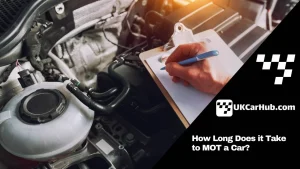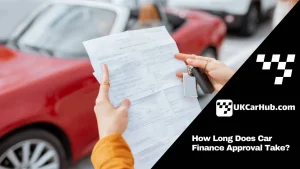Are you in the market for a new car but feeling a bit overwhelmed by all the options and decisions to make? In this blog post, we’ll break down some of the most important factors to consider when purchasing a car. From deciding whether to buy or lease, to understanding car loan interest rates and determining the true cost of a car, we’ve got you covered. We’ll also share our top tips for negotiating the best price and exploring car insurance options in the UK. Plus, we’ll discuss the impact of car depreciation on resale value, so you can make the most informed decision when it comes to your next vehicle purchase. Let’s dive in!
Buying Vs. Leasing: Weighing The Options
When it comes to acquiring a new car, the decision between buying and leasing can be a daunting one. Both options have their own set of advantages and disadvantages, which makes it crucial to carefully weigh the financial aspects before making a final choice. In the United Kingdom (UK), where the car market is highly competitive, it becomes even more important to consider the specific factors that influence the decision-making process. This blog post aims to shed light on the key elements that can help individuals make an informed decision about whether to buy or lease a car in the UK.
One of the primary considerations when weighing the options of buying versus leasing is the financial aspect. Buying a car involves taking out a loan or paying in cash to own the vehicle outright. This requires a significant upfront payment and can result in higher monthly expenses due to loan repayments, insurance, and maintenance costs. On the other hand, leasing offers lower monthly payments, as it essentially involves renting the car for a specific period. It typically requires a lower initial payment and often includes maintenance and warranty coverage. However, at the end of the lease term, the car needs to be returned, and there is no ownership to show for the payments made.
Another important factor to consider when deciding between buying and leasing is the flexibility and long-term commitment. Buying a car provides the freedom to modify, customize, and sell the vehicle whenever desired. It offers long-term ownership and the potential to recoup a portion of the initial investment through resale. Leasing, on the other hand, is a short-term commitment, usually ranging from 2 to 4 years. It offers the advantage of driving a new car with the latest features without the worry of long-term ownership and depreciation. However, it restricts modifications and involves penalties for exceeding mileage limits or excessive wear and tear, which can limit flexibility.
| Aspects | Buying | Leasing |
|---|---|---|
| Ownership | Full ownership after payment | No ownership at the end |
| Upfront Costs | Higher initial payment | Lower initial payment |
| Monthly Expenses | Higher due to loan repayments, insurance, and maintenance | Lower, often includes maintenance and warranty |
| Flexibility | Can modify, customize, and sell | Restrictions on modifications, penalties for excessive wear, and mileage |
Ultimately, the decision to buy or lease a car heavily depends on personal circumstances and preferences. Considerations such as financial capability, long-term commitment, desired flexibility, and future car needs must be carefully evaluated. It is recommended to diligently research and compare the costs of buying and leasing based on individual situations and preferences. Consulting with financial advisors or experts in the automotive industry can also provide valuable insights and guidance in making an informed decision. Understanding the specific car loan interest rates, true cost of ownership, negotiating tactics, insurance options, and the impact of car depreciation is crucial when weighing the options of buying versus leasing a car in the UK.
Understanding Car Loan Interest Rates
Understanding Car Loan Interest Rates
When it comes to financing a car in the UK, borrowers need to understand how car loan interest rates work. The interest rate on a car loan directly affects the overall cost of borrowing, as well as the monthly payments. It is essential to be well-informed about interest rates to ensure that you are getting the best possible deal on your car loan.
Interest rates on car loans in the UK can vary depending on several factors, including the borrower’s credit score, the length of the loan term, and the type of lender. Typically, the better your credit score, the lower the interest rate you will be offered. It is important to check your credit score and take steps to improve it if necessary before applying for a car loan.
Another important factor to consider is the length of the loan term. Generally, the longer the loan term, the higher the interest rate will be. While longer loan terms may result in lower monthly payments, borrowers end up paying more in interest over the life of the loan. Therefore, it is advisable to choose the shortest loan term that you can comfortably afford.
- Researching multiple lenders and comparing interest rates is crucial when getting a car loan in the UK. Different lenders may offer different interest rates, and it is essential to shop around to find the most competitive rate.
- Before finalizing a car loan, it is important to calculate the total cost of borrowing by considering the interest rate, loan term, and any additional fees or charges. This will give you a clear understanding of the true cost of the car loan and help you make an informed decision.
- The type of lender you choose can also impact the interest rate on your car loan. Banks and credit unions typically offer lower interest rates compared to dealerships or online lenders. However, it is still important to compare rates from different lenders to ensure you are getting the best deal.
| Lender | Interest Rate |
|---|---|
| Bank A | 3.5% |
| Credit Union B | 3.75% |
| Dealership C | 4.25% |
Understanding the different car loan interest rates in the UK is crucial for making an informed decision when financing a car. By researching lenders, comparing rates, and considering your own financial situation, you can secure the best possible interest rate and save money in the long run.
How To Determine The True Cost Of A Car
When it comes to purchasing a car, one of the most important factors to consider is the true cost. However, determining the true cost of a car can often be a complex task. It involves taking into account various aspects, including the purchase price, financing options, depreciation, insurance, and maintenance costs. By understanding these financial aspects, you can make a well-informed decision and ensure that you are not caught off guard by hidden expenses.
One of the first steps to determine the true cost of a car is to calculate your budget. Assessing your financial situation and determining how much you can afford to spend on a car is crucial before even considering purchasing one. It is important to take into account not only the initial cost of the car but also any monthly payments, insurance premiums, fuel costs, and maintenance expenses that may arise. By setting a budget, you can avoid overspending and ensure that the car fits comfortably within your financial means.
Next, it’s important to consider the financing options available to you. Most car purchases involve some form of financing, whether it is through a bank loan, dealership financing, or leasing. Each financing option comes with its own set of advantages and disadvantages, and it is essential to understand the terms and conditions, interest rates, and repayment terms associated with each. Comparing different financing options can help you determine the most cost-effective solution and avoid any unnecessary financial burdens in the long run.
Another factor to take into consideration is the depreciation of the car. Cars typically lose value over time due to wear and tear and market fluctuations. Understanding the rate of depreciation for different car models can help you estimate how much the car will be worth in the future. This is especially important if you plan on selling or trading in the car down the line. By considering the depreciation rate, you can better assess the overall cost of owning the car and make a more informed decision.
In addition to the purchase price and financing options, it is crucial to consider the costs associated with car insurance and maintenance. Car insurance is a legal requirement in the UK, and the premiums can vary depending on factors such as the car’s make and model, your location, and your driving history. Researching different insurance options and obtaining quotes can help you estimate the insurance costs for the specific car you are interested in. Furthermore, regular maintenance costs, including routine servicing, repairs, and replacement parts, should also be taken into account when determining the true cost of a car.
| Key Aspects to Consider: |
|---|
| – Purchase price |
| – Financing options |
| – Depreciation |
| – Insurance costs |
| – Maintenance expenses |
By considering all of these financial aspects, you can determine the true cost of a car and make a well-informed decision. Remember, it is not only about the initial purchase price but also the ongoing expenses associated with owning and maintaining the car. Taking the time to assess your budget, research financing options, and estimate depreciation, insurance, and maintenance costs will help you avoid financial surprises and find the perfect car that aligns with your needs and financial means.
Tips For Negotiating The Best Car Price

When it comes to purchasing a car, negotiating the best price is key to getting a good deal. Whether you are buying a new or used car, understanding the car’s financial aspects is essential. In the UK, consumers have various options and strategies to follow in order to negotiate the best car price. This article aims to provide some useful tips and insights on how to negotiate the best price for a car in the UK.
One important aspect to consider when negotiating the best car price is to do thorough research beforehand. By researching and gathering information about the car you are interested in, you will have a better understanding of its market value and the average price range. This will allow you to be better prepared during negotiations and have a realistic expectation of what a fair price would be.
Another tip for negotiating the best car price is to be confident and assertive during the process. Car salesmen are trained professionals who are used to negotiating, so it is important to stay firm and not be easily swayed. Being knowledgeable about the car’s financial aspects, such as its depreciation rate and resale value, can give you an edge during negotiations.
- Additionally, it can be beneficial to consider financing options and explore different car loan interest rates. By understanding the financial terms and conditions of the loan, you can make a more informed decision when negotiating the price. Car loan interest rates can significantly impact the overall cost of the car, so it is crucial to take them into account when negotiating.
| Tip | Description |
|---|---|
| 1. Be Prepared | Research, gather information, and set a realistic expectation of the car price. |
| 2. Be Confident | Stay firm, be assertive, and don’t easily get swayed by salesmen tactics. |
| 3. Consider Financing | Understand car loan interest rates and their impact on overall cost. |
Lastly, it is important to keep an open mind and be flexible during negotiations. There may be additional factors or options that can be considered to reach a mutually beneficial agreement. Being willing to compromise and explore alternative solutions can help in securing the best price for the car.
In conclusion, negotiating the best car price in the UK requires research, confidence, and an understanding of the car’s financial aspects. By following these tips and strategies, consumers can increase their chances of getting a good deal. Remember to stay prepared, be confident, and consider financing options to obtain the best possible price for your next car purchase.
Exploring Car Insurance Options In The Uk
Exploring Car Insurance Options In The UK
When it comes to owning a car in the UK, car insurance is one of the most important aspects to consider. It not only provides financial protection in case of accidents, but it is also a legal requirement. With the multitude of car insurance options available in the UK, it can be overwhelming to choose the right one that fits your needs and budget. In this blog post, we will explore the different car insurance options in the UK to help you make an informed decision.
Liabilities and Comprehensive Cover
Car insurance in the UK can be broadly categorized into two main types: third-party and comprehensive cover. Third-party car insurance is the minimum legal requirement and covers the damages caused to other vehicles or property in an accident. On the other hand, comprehensive cover provides additional protection by covering the damages to your own vehicle as well.
Comparing Quotes and Features
It is important to shop around and compare car insurance quotes from different providers in the UK. Each insurance company offers different features and benefits, so it is crucial to read the policy details carefully. Look for additional features like breakdown cover, windscreen replacement, and legal expenses coverage, which can provide added peace of mind on the road. Consider the excess amount and any no-claims discounts offered by the insurers as well.
Finding the Right Level of Cover
Before selecting a car insurance option, it is essential to assess your own needs and the level of cover you require. If you have a new or expensive car, comprehensive cover might be a more suitable choice to protect your investment. However, if you have an older vehicle, third-party cover may be more cost-effective. Additionally, consider factors like your driving habits, annual mileage, and where you park your car. All of these factors can affect the level of cover you need.
| Car Insurance Option | Key Features |
|---|---|
| Third-Party | Minimum legal requirement |
| Comprehensive | Includes damages to your own vehicle |
| Additional Coverages | Breakdown cover, windscreen replacement, legal expenses |
In conclusion, exploring car insurance options in the UK is vital to ensure you have the right level of protection for your vehicle. Take the time to compare quotes, consider the features offered, and evaluate your own needs before making a decision. Whether you opt for third-party or comprehensive cover, remember that having car insurance is not only a legal requirement but also a crucial financial aspect of owning a car in the UK.
The Impact Of Car Depreciation On Resale Value
When it comes to the financial aspects of owning a car, one important factor to consider is the impact of car depreciation on resale value. Car depreciation refers to the decline in a vehicle’s value over time, and it is an unavoidable reality for all car owners. Understanding how depreciation affects the resale value of a car is key to making informed decisions about buying, selling, or trading in a vehicle.
Firstly, it is important to note that not all cars depreciate at the same rate. Factors such as the make and model of the car, its age, mileage, condition, and market demand all play a role in determining how quickly a car’s value will decline. Luxury cars and electric vehicles, for example, tend to depreciate at a faster rate than more affordable and fuel-efficient cars.
Secondly, the rate of depreciation can vary depending on the location. In the UK, where there is a strong demand for small, fuel-efficient cars, these vehicles tend to hold their value better compared to larger, less efficient models. This is partly due to the higher fuel prices and the desire for more environmentally friendly options.
- Additionally, depreciation rates can also be influenced by the type of ownership. Buying a new car, for instance, often leads to a sharper depreciation curve compared to buying a used car. This initial drop in value is often referred to as “first-year depreciation.” On the other hand, buying a used car that has already undergone significant depreciation can result in a more gradual decline in value over time.
| Car Age | Depreciation Rate |
|---|---|
| 1 year | 20-30% |
| 3 years | 40-50% |
| 5 years | 55-60% |
Understanding the impact of car depreciation on resale value is crucial if you plan to sell or trade in your vehicle in the future. By choosing a car that depreciates at a slower rate or considering factors such as the market demand for specific models, you can potentially minimize your losses when it comes time to sell. It is also worth considering other strategies such as maintaining the car in good condition, keeping mileage low, and researching the expected depreciation rates of different makes and models before purchasing a vehicle.
In conclusion, car depreciation has a significant impact on the resale value of a vehicle. Various factors such as make and model, age, mileage, condition, market demand, and type of ownership all influence the rate at which a car depreciates. Understanding these factors and making informed decisions can help car owners mitigate the financial impact of depreciation when buying, selling, or trading in a car.
Frequently Asked Questions
1. What are the advantages and disadvantages of buying versus leasing a car?
Buying a car allows you to build equity and eventually own the vehicle, but it requires a larger upfront investment and may lead to higher long-term costs. Leasing a car offers lower monthly payments and the ability to drive a new vehicle every few years, but you do not own the car and may face mileage restrictions and fees.
2. How can I understand car loan interest rates?
To understand car loan interest rates, you should consider factors such as your credit score, the loan term, and the down payment. Higher credit scores usually qualify for lower interest rates, while longer loan terms and smaller down payments may result in higher rates. It’s important to compare offers from different lenders and read the terms and conditions carefully.
3. What factors contribute to the true cost of a car?
The true cost of a car includes not only the purchase price but also factors such as fuel efficiency, insurance costs, maintenance and repairs, and depreciation. It’s essential to consider these expenses over the lifespan of the vehicle to make an informed decision about affordability.
4. What tips can help me negotiate the best car price?
When negotiating the price of a car, it’s important to do your research, know the market value of the vehicle, and be prepared to walk away if the deal isn’t right. You can also leverage competition among dealerships, consider timing your purchase for discounts or promotions, and be willing to negotiate on trade-in value or financing terms.
5. What car insurance options are available in the UK?
In the UK, car insurance options typically include third-party only, third-party, fire and theft, and comprehensive coverage. Third-party only covers damage to others and their property, third-party, fire and theft also covers your vehicle from fire and theft, and comprehensive coverage offers the highest level of protection, covering a wide range of risks.
6. How does car depreciation impact resale value?
Car depreciation refers to the decline in the vehicle’s value over time. It significantly impacts the resale value because cars generally lose value quickly in the first few years of ownership. Understanding the depreciation rate of a car helps determine its future resale value and potential financial losses.
7. How can I minimize the impact of car depreciation on resale value?
To minimize the impact of car depreciation on resale value, it’s important to choose a vehicle with a reputation for holding value well, maintain the car properly, avoid excessive mileage, and consider factors like color and popular features that may affect resale demand. Regular upkeep and avoiding accidents or damages can help preserve the value of the car.



















